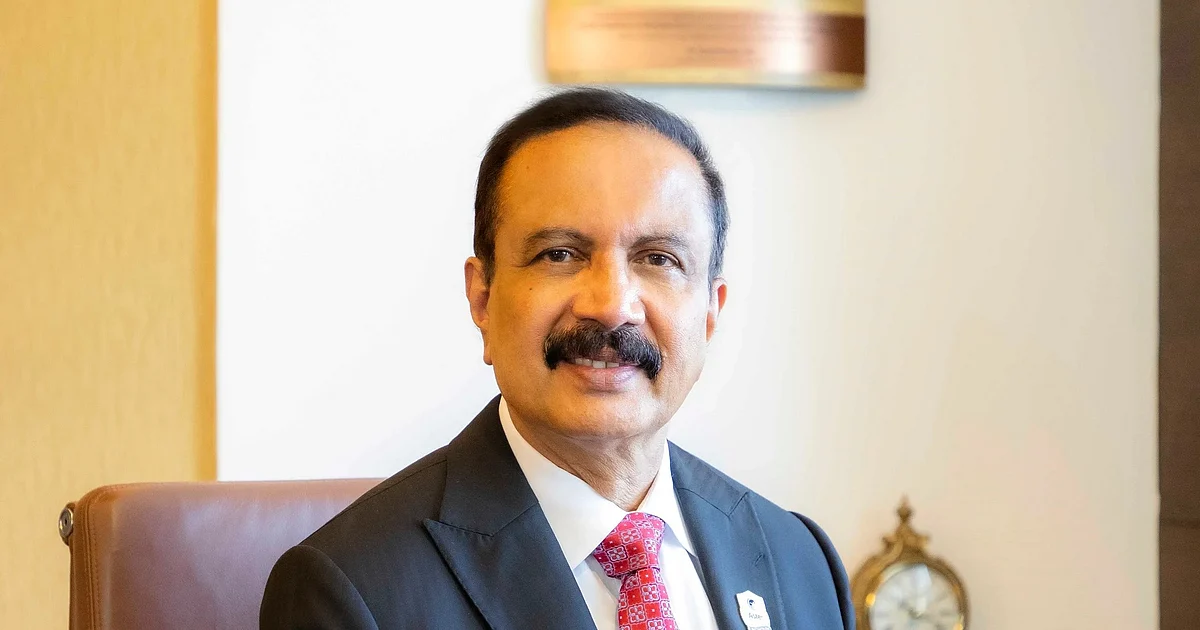Health
Bengaluru’s Healthcare Sector Expands with New Aster Hospitals

Bengaluru is emerging as a significant player in India’s healthcare sector, according to Dr Azad Moopen, Founder and Chairman of Aster DM Healthcare. The hospital chain has recently announced plans to open two new facilities: a 430-bed hospital in Sarjapur and a 500-bed hospital in Yeswanthpur, Bengaluru. Additionally, Aster will expand the current capacity of Aster CMI Hospital by 350 beds and add 159 beds at Aster Whitefield.
The rise in demand for healthcare in Bengaluru is attributed to rapid urbanization, the growth of IT corridors, and an increasing public awareness of quality tertiary care. Following the merger of Aster DM Healthcare and Quality Care India Ltd, backed by Blackstone, Aster has become one of the top three hospital chains in India, now operating a total of 10,366 beds—5,197 from Aster and 5,169 from QCIL.
Dr Moopen elaborated on Aster’s ambitious expansion strategy, which aims to add more than 2,600 beds across the country in the coming years. A total capital investment of approximately Rs 2,500 crore has been allocated for this growth initiative, with Rs 350-400 crore already invested in critical projects as of the first quarter of FY26. The planned expansion includes over 490 beds in FY26, more than 1,050 in FY27, and the remaining capacity beyond FY27, with a focus on key regions such as Bengaluru and Kerala.
In a recent report by KPMG and the Federation of Hotel and Restaurant Associations of India (FHRAI), it was projected that India’s medical tourism market is set to grow from $18.2 billion in 2025 to $58.2 billion by 2035. In response, Dr Moopen stated that Aster is actively collaborating with insurance companies to enhance medical value travel (MVT) initiatives, which have successfully increased revenue and patient volumes. The organization is also looking to capitalize on opportunities in the Commonwealth of Independent States (CIS) countries, planning to work closely with embassies and government entities to attract more international patients.
The shortage of family physicians in India poses a significant challenge, particularly as the healthcare system shifts toward community-based and preventive care. According to a national survey, the country needs to train around 15,000 new family doctors each year by 2030 to adequately serve rural and underserved populations.
Dr Moopen also discussed the role of artificial intelligence (AI) in improving healthcare delivery. By leveraging data analytics and AI, Aster is optimizing hospital operations and personalizing patient care. He noted that the use of AI tools has notably enhanced diagnostic accuracy, resulting in improved clinical outcomes. The expansion of telemedicine services has further increased access to healthcare for remote communities, lowering consultation costs and delivering specialized care to underserved areas.
On the digital front, Aster recently launched the ‘Aster Health’ App, designed to provide easy access to essential healthcare services. Future updates are planned to expand the app’s functionality to include pharmacy services, laboratories, and home care.
Dr Moopen concluded by expressing Aster’s vision to redefine healthcare delivery through the integration of advanced technologies and compassionate care, aiming to set new standards in the industry.
-

 World4 months ago
World4 months agoSBI Announces QIP Floor Price at ₹811.05 Per Share
-

 Lifestyle4 months ago
Lifestyle4 months agoCept Unveils ₹3.1 Crore Urban Mobility Plan for Sustainable Growth
-

 Science3 months ago
Science3 months agoNew Blood Group Discovered in South Indian Woman at Rotary Centre
-

 World4 months ago
World4 months agoTorrential Rains Cause Flash Flooding in New York and New Jersey
-

 Sports3 months ago
Sports3 months agoBroad Advocates for Bowling Change Ahead of Final Test Against India
-

 Top Stories4 months ago
Top Stories4 months agoKonkani Cultural Organisation to Host Pearl Jubilee in Abu Dhabi
-

 Science4 months ago
Science4 months agoNothing Headphone 1 Review: A Bold Contender in Audio Design
-

 Top Stories4 months ago
Top Stories4 months agoAir India Crash Investigation Highlights Boeing Fuel Switch Concerns
-

 Sports3 months ago
Sports3 months agoCristian Totti Retires at 19: Pressure of Fame Takes Toll
-

 Business4 months ago
Business4 months agoIndian Stock Market Rebounds: Sensex and Nifty Rise After Four-Day Decline
-

 Politics4 months ago
Politics4 months agoAbandoned Doberman Finds New Home After Journey to Prague
-

 Top Stories4 months ago
Top Stories4 months agoPatna Bank Manager Abhishek Varun Found Dead in Well









